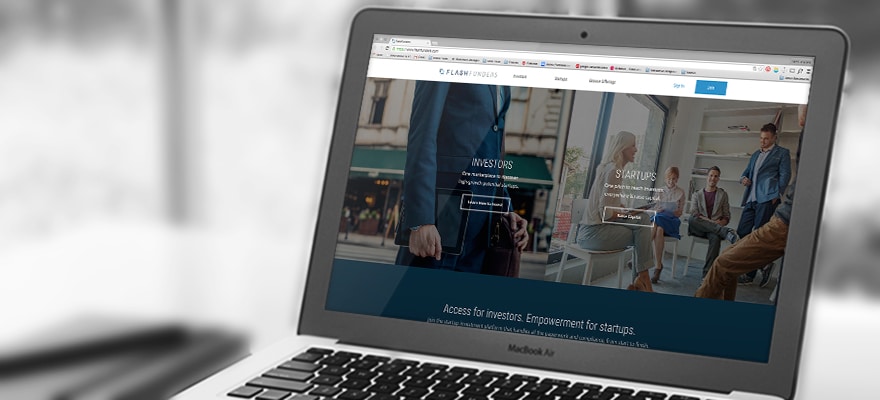With increasing numbers of new investors now participating in the funding of private startups, angel investing has grown quickly within the US and other parts of the world. However, private funding comes with large risks for those unable to evaluate financial terms properly or who have access to better deals. As a solution, equity crowdfunding platforms offer the ability for more novice investors to invest alongside experienced angels or venture capital funds.
Part of the new equity crowdfunding growth is which launched in 2014 and has recently surpassed $12 million in closed deals on their platform. Aiming to spur further growth on the platform, FlashFunders has announced that they are partnering with venture capital firm Raven Ventures.
Focusing on seed and early stage businesses, Raven Ventures is committing to invest $5 million through the FlashFunders platform. The added liquidity of investable funds is expected to provide added capital to startups that are raising funds on FlashFunders, helping them close deals. In addition, investors gain an experienced venture firm to invest alongside.
Regarding their commitment, Kristian Blaszczynski, Managing Partner of Raven Ventures, commented: “Raven Ventures is choosing to invest on the FlashFunders platform because the company has become an industry leader in online equity funding for startups and investors.”
Crowdfunding trends
Learning more about their platform and current crowdfunding trends, Finance Magnates connected with Vincent Bradley, Co-Founder and CEO of FlashFunders. With regard to which types of startups have been found to perform well at raising funds through equity crowdfunding, Bradley answered: “Traditionally Consumer Packaged Goods (CPG) & B2C products perform better on equity crowdfunding platforms.”
Bradley explained: “It’s important when fundraising to have a simple message and an easy to understand value proposition, this is true whether you’re speaking to professional investors or the crowd, but CPG & B2C products seem like they’re often easier to understand — less industry knowledge is required.”
Other than industry type, another key factor for startups is deciding what percentage of their funding rounds are raised from a crowdfunding platform. In their case, Bradley stated that firms will close their entire round on the platform. Bradley explained that this is the case as “The round size and classification varies by company and industry, but we traditionally see a lot of companies coming to us for seed and bridge rounds”- these tend to be smaller than the larger Series A funding.
In terms of opening their platform to non-accredited investors using the recently enacted Regulation A+, Bradley answered that they plan on continuing to only service accredited investors. He explained: “Our general sentiment is that Reg A+ does not make a lot of financial sense for early stage companies given costly financial audits and filing requirements. While Reg A+ could make sense for a more mature company, our platform is primarily focused on seed stage rounds.”





Be First to Comment